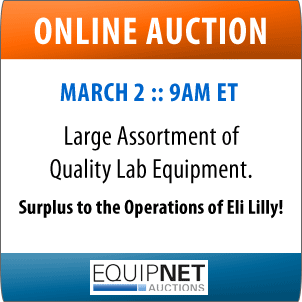|
Aug 16
2010
|
|
|
Sign up to receive these free articles weekly
No. 12: August 16-20, 2010
PI Bears Heavy Responsibility in Medical-Device Study
Question: A medical-device maker asked me to serve as principal investigator (PI) to study a new implanted cardiovascular product. This will be my first experience of this kind. What are my responsibilities? Are they different from those of a PI in a drug study?
Expert Comments: That is an excellent question to ask before you commit yourself to this project. The Food and Drug Administration (FDA) has conducted many inspections of PI sites and issued numerous warning letters based on observations of non-compliance with the regulations. (http://www.fda.gov/ICECI/EnforcementActions/WarningLetters/default.htm)
In October 2009 the FDA issued a guidance document entitled Investigator Responsibilities – Protecting the Rights, Safety, and Welfare of Study Subjects.(http://www.fda.gov/downloads/Drugs/GuidanceComplianceRegulatoryInformation/Guidances/UCM187772.pdf) It covers studies involving drugs, biologics, and medical devices.
Because the device you will study is a new implanted cardiovascular product, it meets the definition of a significant-risk device. (21 CFR 812.3(m)). This study will be conducted under an Investigational Device Exemption (IDE), and the company will be the IDE sponsor.
The title of the FDA document makes its purpose quite obvious — protecting the rights, safety, and welfare of study subjects. As the PI, you are responsible for providing adequate supervision to those on your research staff.
This supervision is of such importance that the FDA will hold you accountable for regulatory violations resulting from failure to adequately supervise the conduct of the study.
To help ensure that the FDA will deem your supervision adequate, you will want to focus on these four areas: verifying that anyone to whom a task is delegated is qualified to perform the task; adequate staff training on the conduct of the study and delegated tasks; ongoing supervision and involvement in the conduct of the study; and reasonable supervision and oversight of any third parties involved.
Let’s look at each of those areas to better understand FDA’s current thinking on them:
Appropriate delegation – Individuals who are assigned tasks must be qualified by education, training, and experience. The tasks usually are clinical in nature or involve providing medical care, requiring formal training and in some cases licensure or certification. As the PI you should keep an up-to-date list of who's been assigned to which tasks, their qualifications, and their dates of involvement in the study. Keep a separate list for each study in which you are the PI.
Adequate training – As the PI you should ensure that the research staff understands the purpose of the study and the protocol, is aware of the regulatory requirements, is competent to perform the tasks, is informed of study changes, and receives appropriate additional training as needed.
Adequate supervision – Sub-investigators should report directly to the PI. The PI should have the authority to evaluate the sub-investigator’s performance and terminate the sub-investigator’s involvement . As the PI you should develop a plan for the supervision and oversight of the clinical trial. The FDA’s guidance document provides a list of elements that should be included.
Oversight of third parties – As the PI you should ensure that any third parties are qualified and trained to perform assigned tasks, and provide training if they are not. You are responsible for supervising what these persons do even though they are not in your direct employ. Observed deficiencies should be documented and reported to the third-party supervisor and to the IDE sponsor. Outside testing facilities, such as central clinical chemistry labs, usually are contracted by the IDE sponsor. In these cases the IDE sponsor is responsible to ensure their competency. The PI should carefully review these reports for any results inconsistent with clinical presentation. Suspected errors or questionable results should be reported to the IDE sponsor.
A notable difference in a medical-device study may be the company’s use of field clinical engineers. Their role is to provide technical assistance to the PI. You must ensure that their presence or activities do not bias the outcome of the study, adversely affect the quality of tresearch data, or compromise the rights of the study subjects. The role of the field clinical engineer should be described in the protocol. If the engineer has contact with the subjects, these activities should be described in the informed consent document.
In a drug study there is a standard PI form (FDA 1572). There is no standard form for a PI to sign in a device study. Instead the IDE sponsor will have you sign an “investigator’s statement.” The regulatory implications are the same.
In general, the responsibilities of a PI for a significant-risk device study are similar to those of a PI for a drug study. The regulations for medical-device studies (21 CFR 812) provide the specific responsibilities for the PI. The topics covered include maintaining records, allowing inspections, submitting reports, distributing and tracking the investigational device, and prohibiting any promotion of the device.
To start, you will need training to familiarize you with your general and specific obligations, and your staff should be present for this training as well. The device company that is the IDE sponsor should offer this training, and it must be documented. It is in everyone’s best interest to understand their roles and comply with regulations. The human subjects need to be protected and the data must be accurate and valid. The FDA relies on the data to support the device's safety and effectiveness and to approve it for marketing.
In the meantime, reviewing the investigational device regulations at 21 CFR 812 (http://www.accessdata.fda.gov/scripts/cdrh/cfdocs/cfcfr/CFRSearch.cfm?CFRPart=812) will provide some basic knowledge to prepare you for the pre-study investigators’ meeting and to conduct the study with confidence.
Comments by Harvey M. Arbit, PharmD, MBA, the president of Arbit Consulting, LLC. He specializes in FDA regulatory affairs related to investigator-initiated IND and IDE research.
Agree? Disagree? Submit your comments
Top finds
- Migliori Siti Di Poker Online
- Casino Non Aams
- Migliori Slot Online
- Casino Not On Gamstop
- Casino Not On Gamstop
- Migliori Casino Online Italia
- Non Gamstop Casinos UK
- Best Non Gamstop Casinos
- Non Gamstop Casino Sites UK
- Non Gamstop Casinos
- Sites Not On Gamstop
- Betting Sites Not On Gamstop UK
- Best Online Casino Canada
- オンラインカジノ
- Real Poker Online
- Slots Not On Gamstop
- Non Gamstop Casinos
- Non Gamstop Casino Sites UK
- UK Casino Sites Not On Gamstop
- Slots Not On Gamstop
- Non Gamstop Casino Sites UK
- Casino Sites Not On Gamstop
- Meilleur Casino En Ligne
- UK Casino Not On Gamstop
- Best Betting Sites Not On Gamstop
- Migliori Casino Non Aams
- Top 10 Casino En Ligne Belgique
- Meilleur Casino En Ligne Belgique
- Migliori Casino Online Esteri
- 仮想通貨 カジノ 入金ボーナス
- Live Casino France
- Casino En Ligne 2026
- Casino Français En Ligne
- Casino Sicuri Non Aams
- 코인카지노 사이트
- Meilleur Casino En Ligne
- Casino En Ligne 2026
- Casino En Ligne
- Casino En Ligne Français



